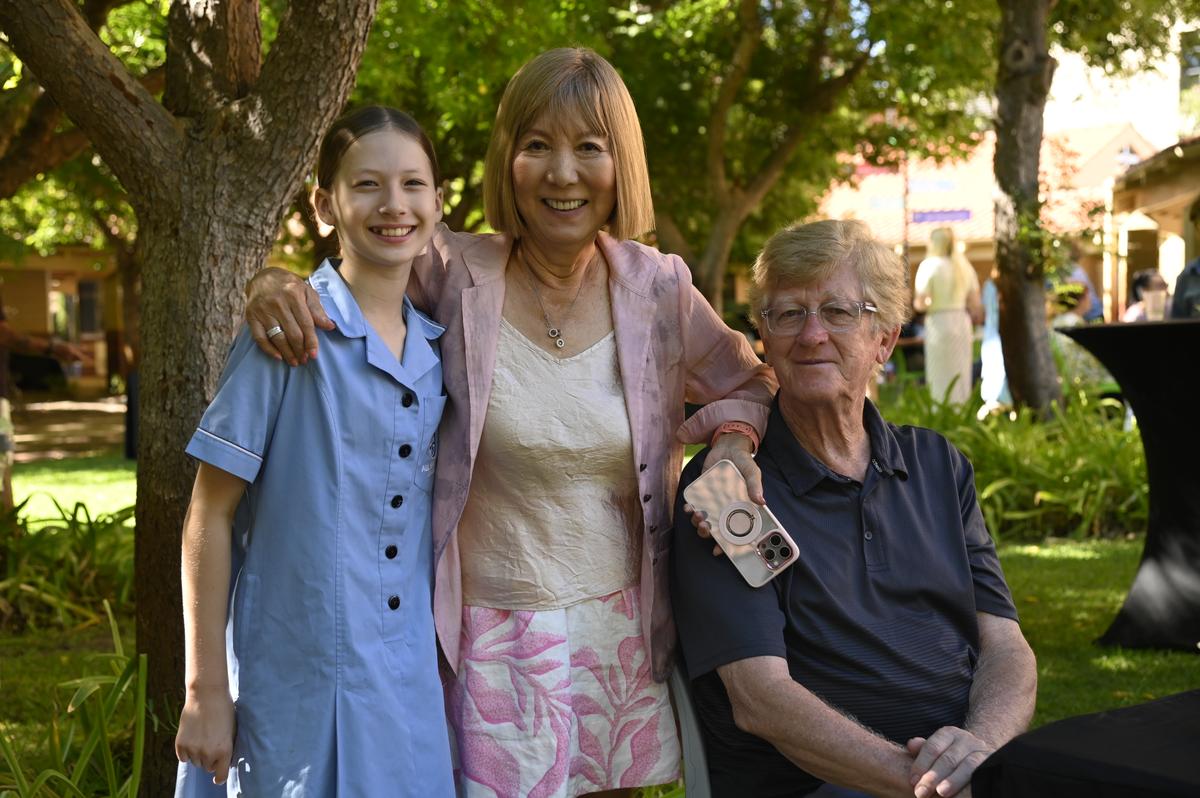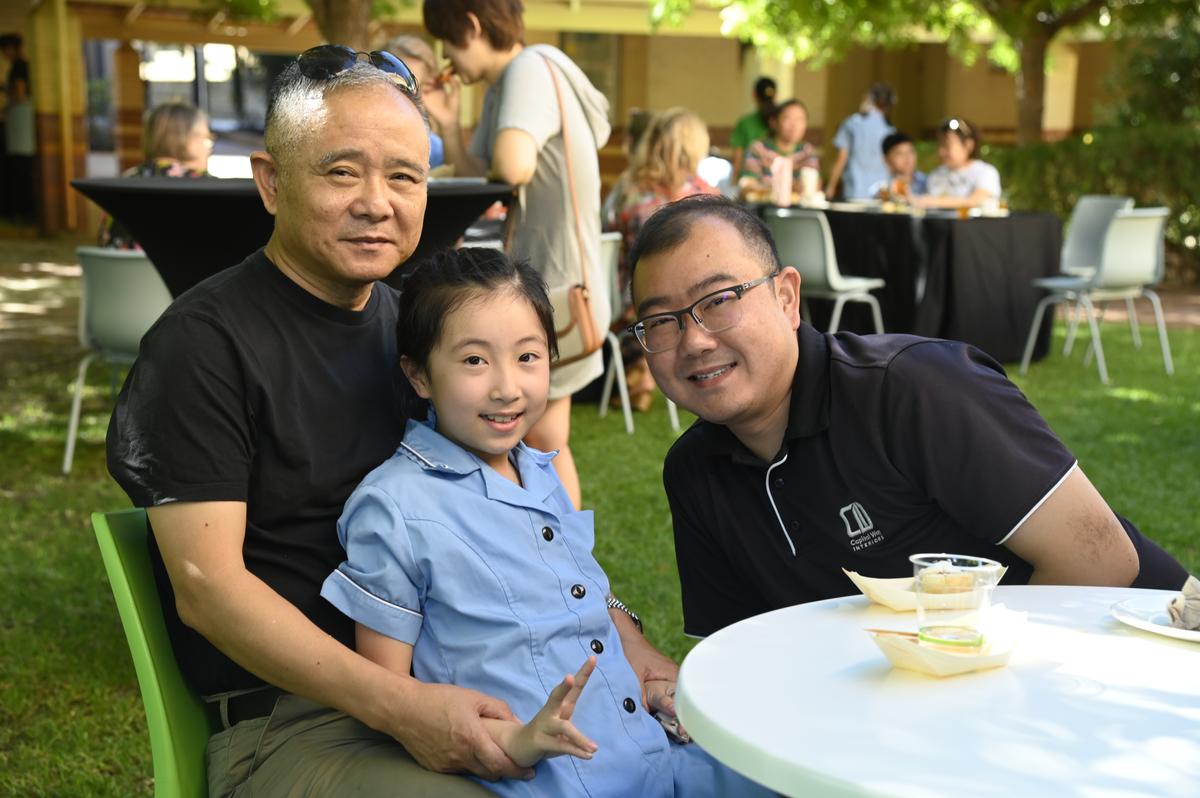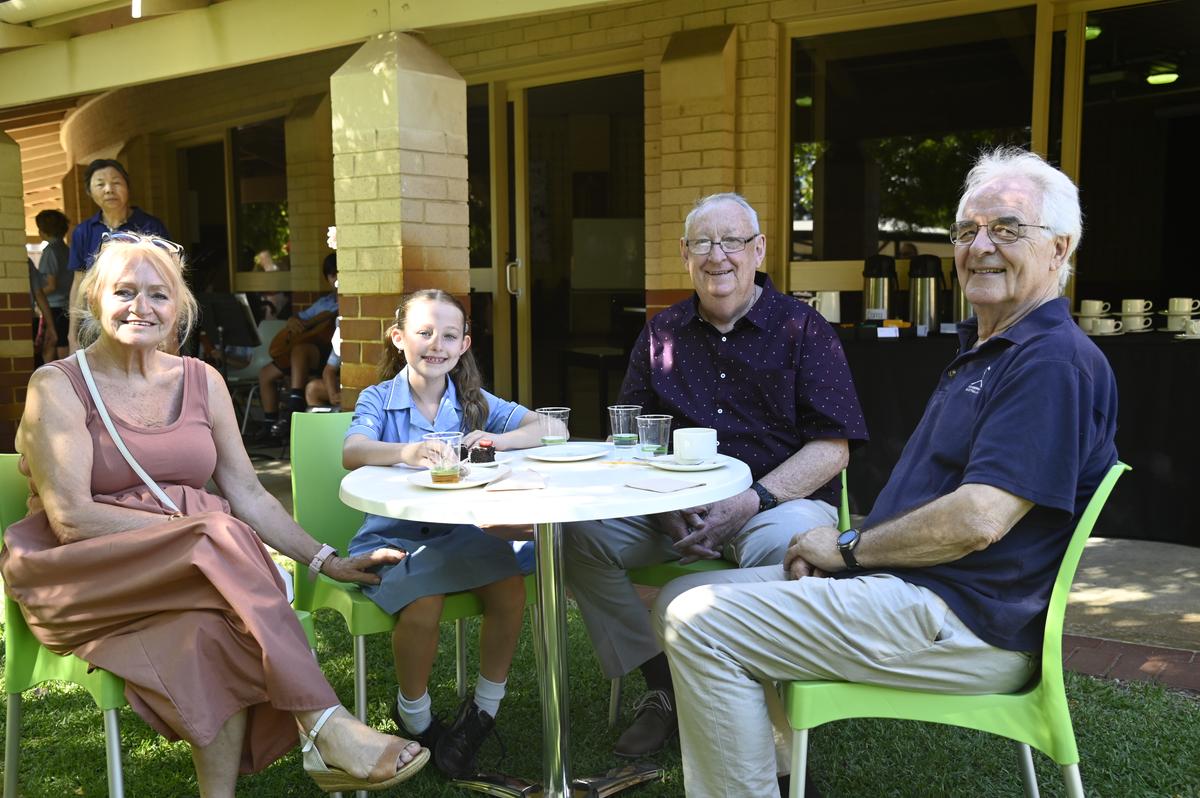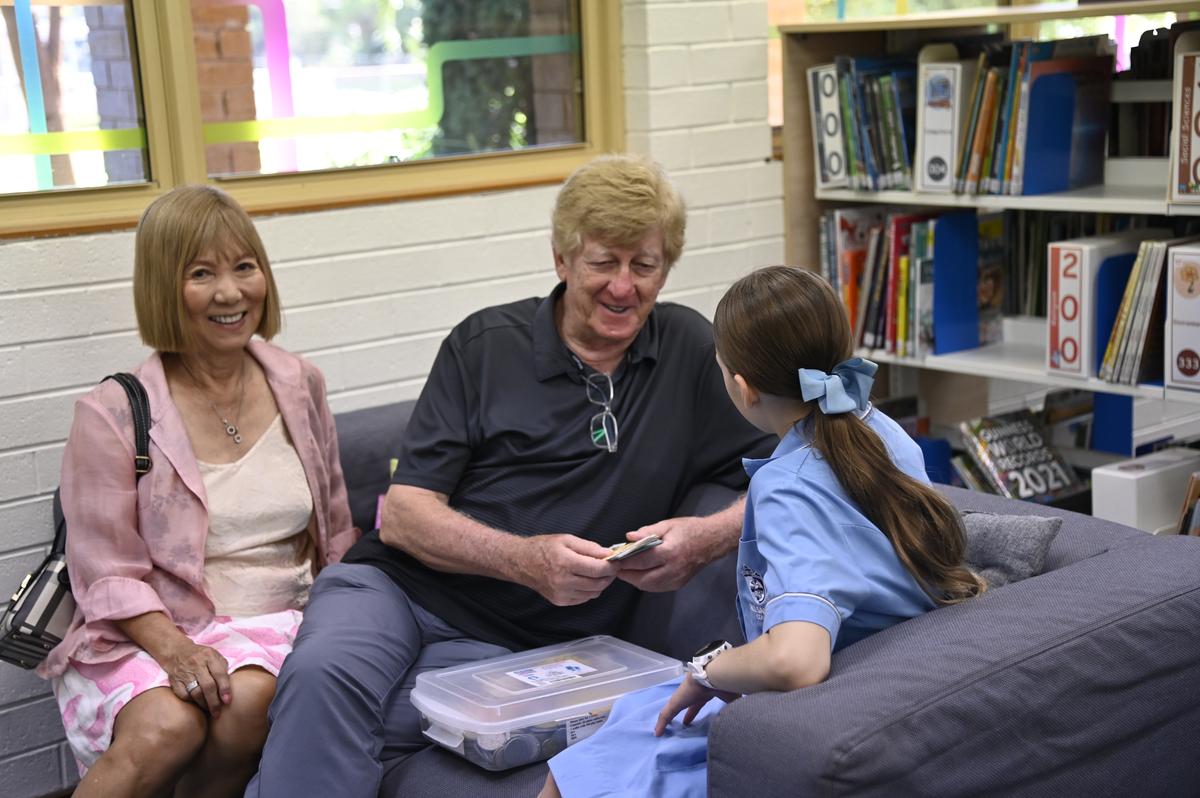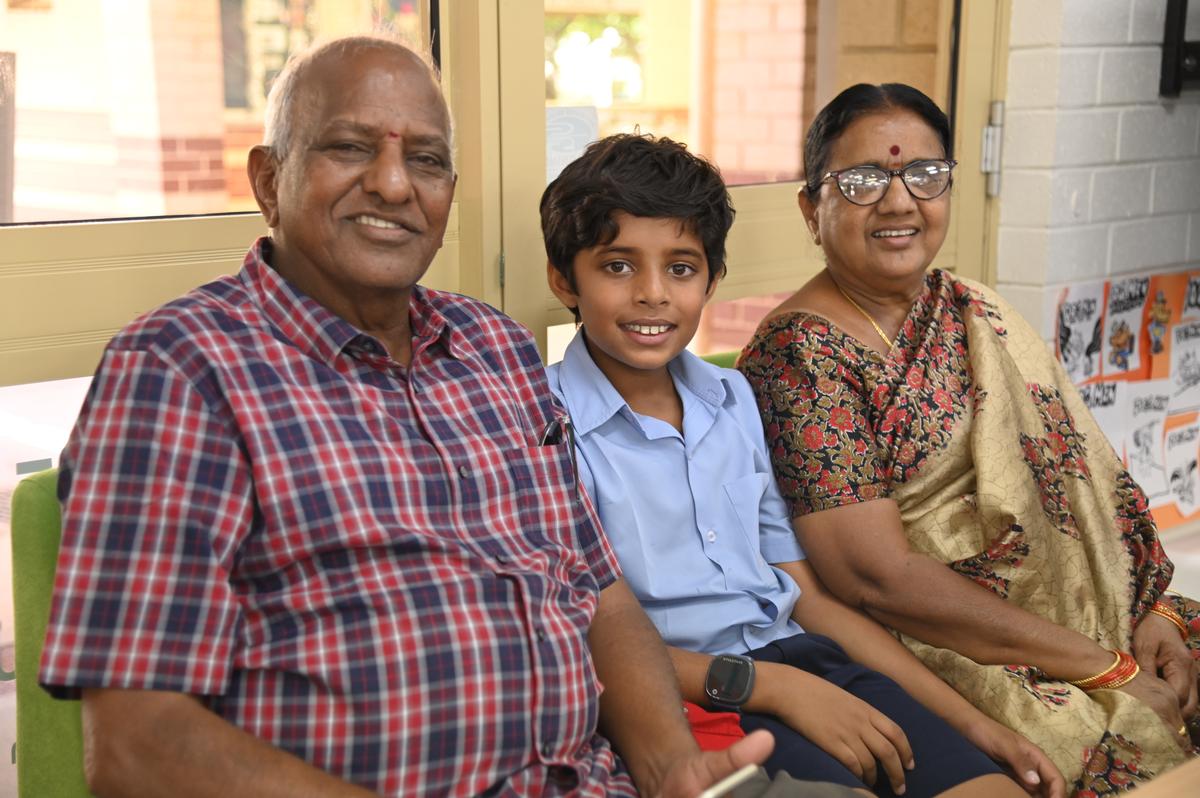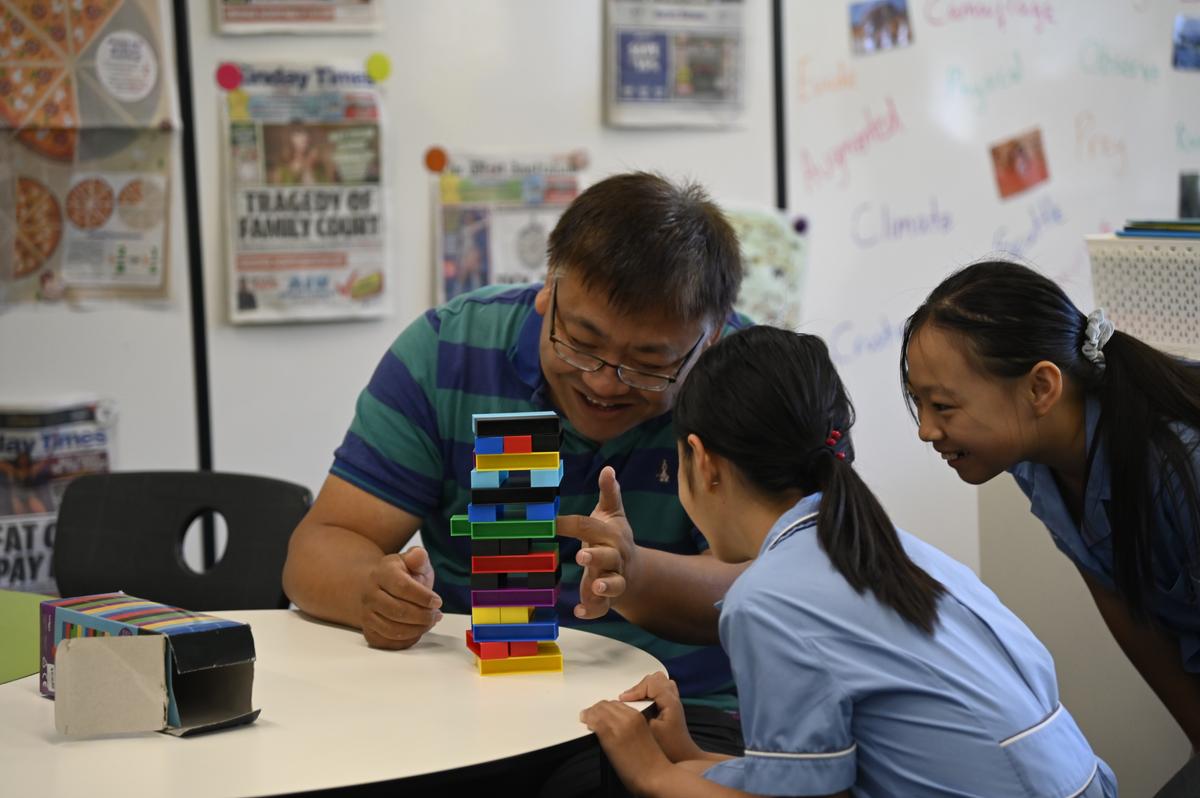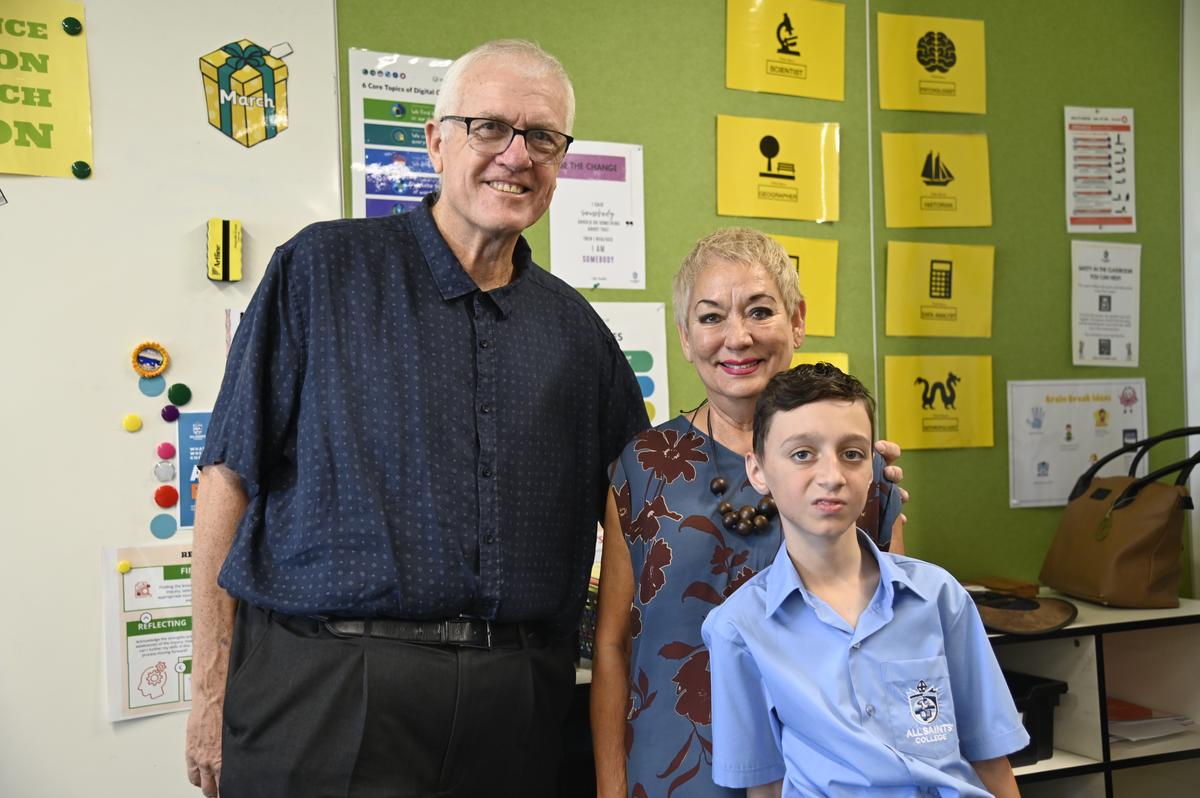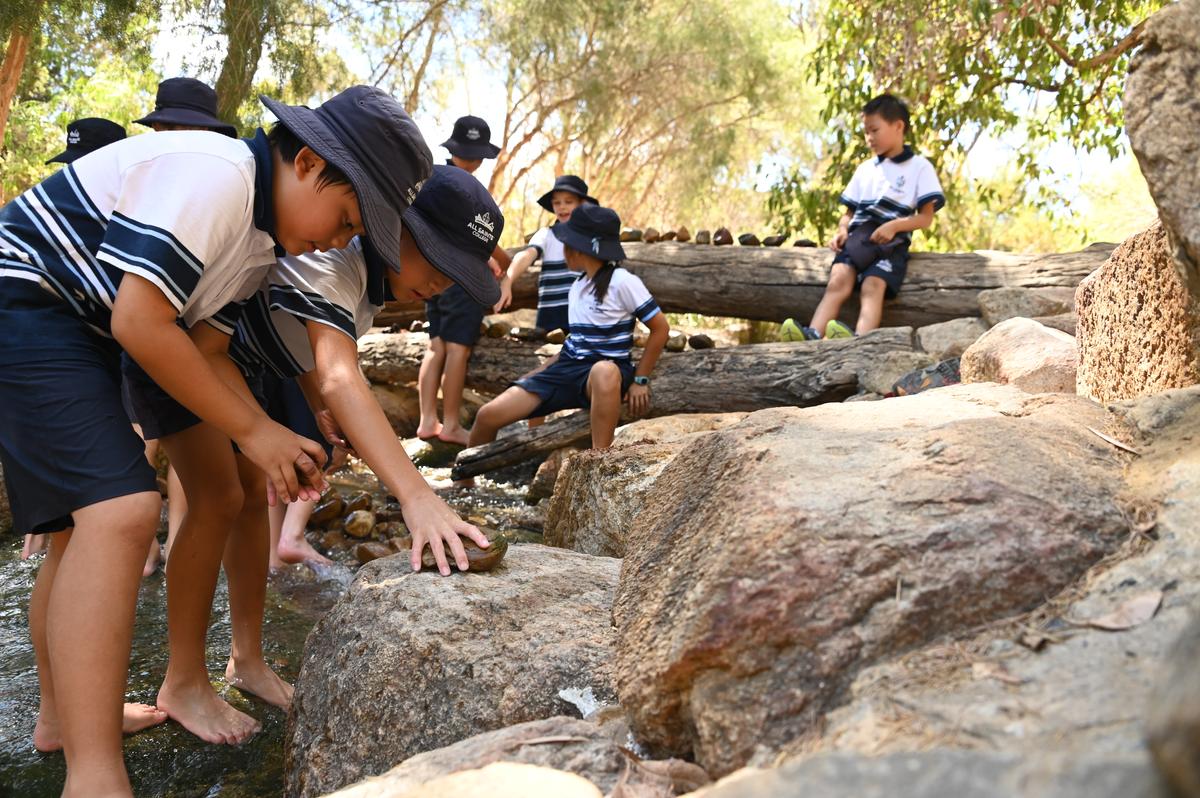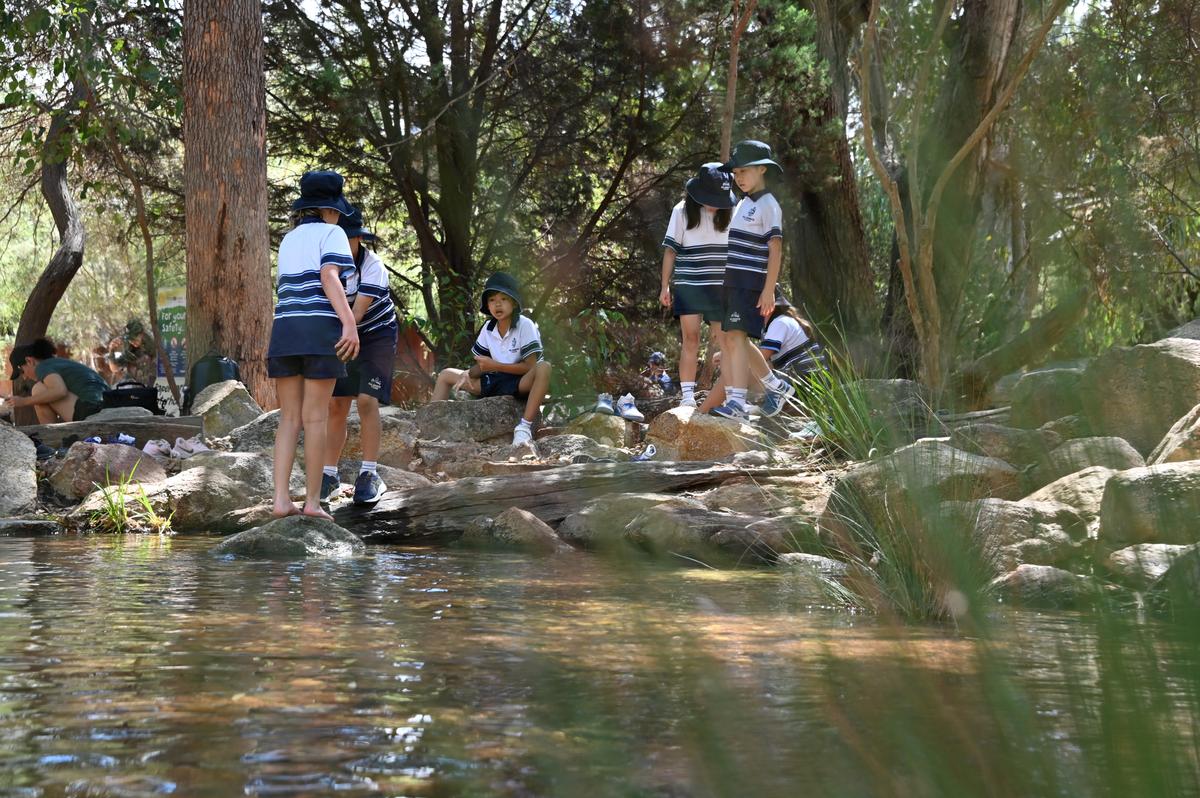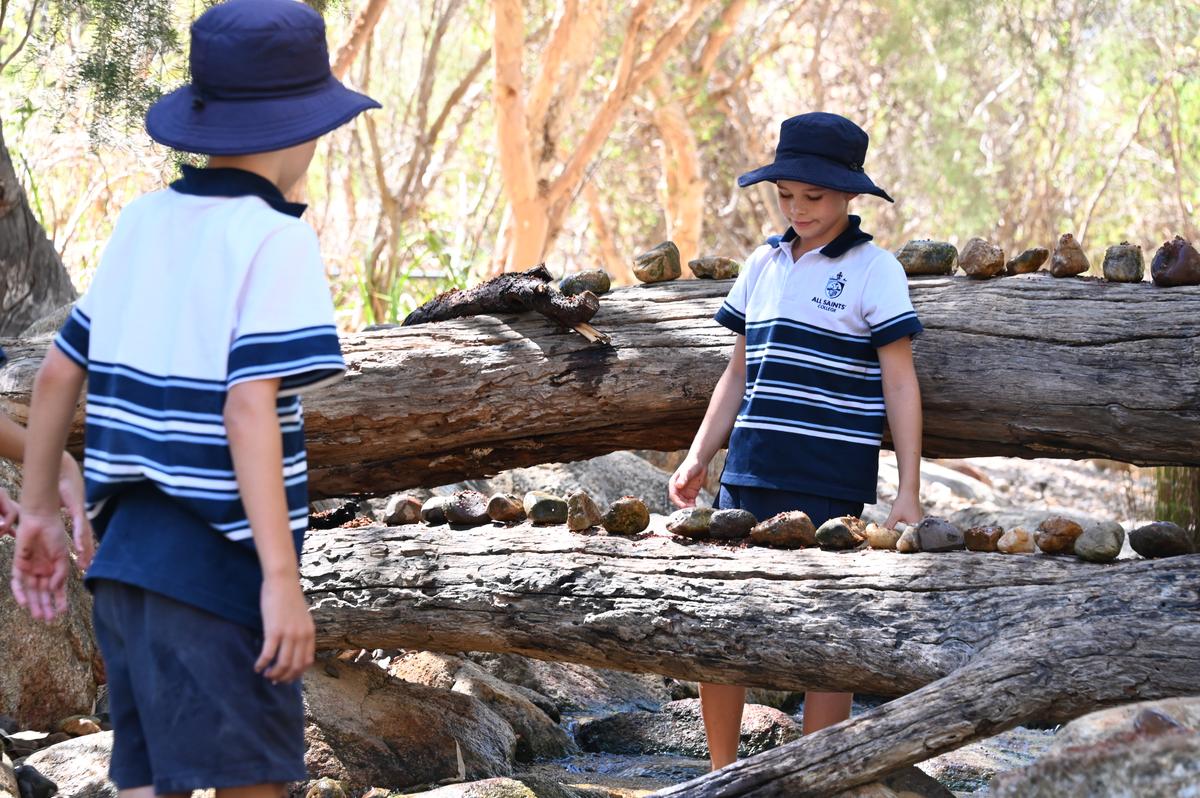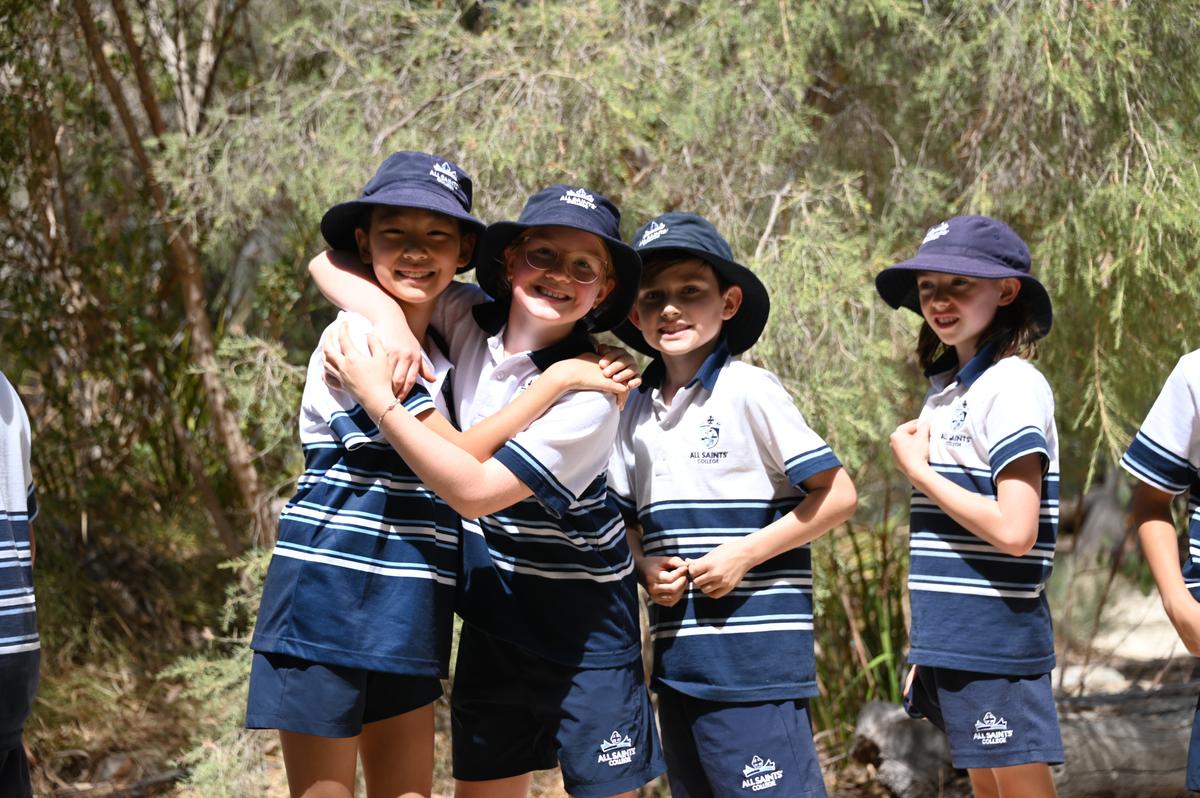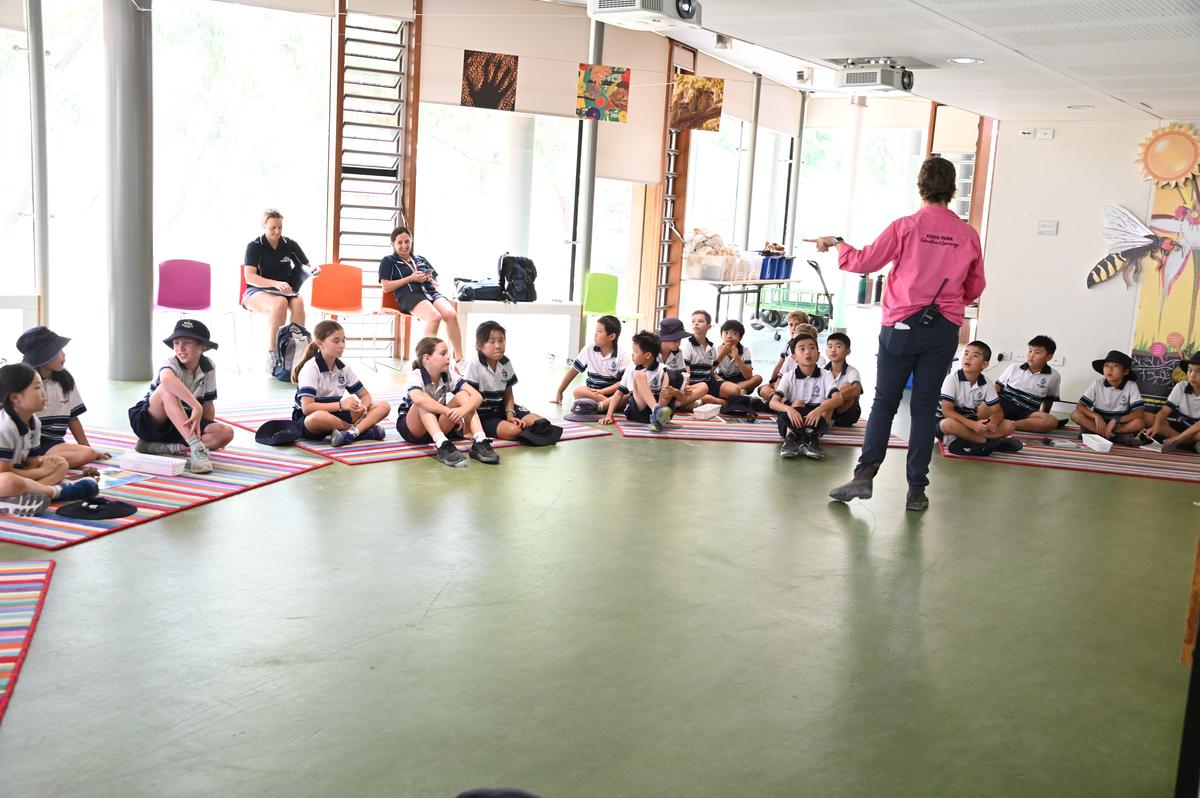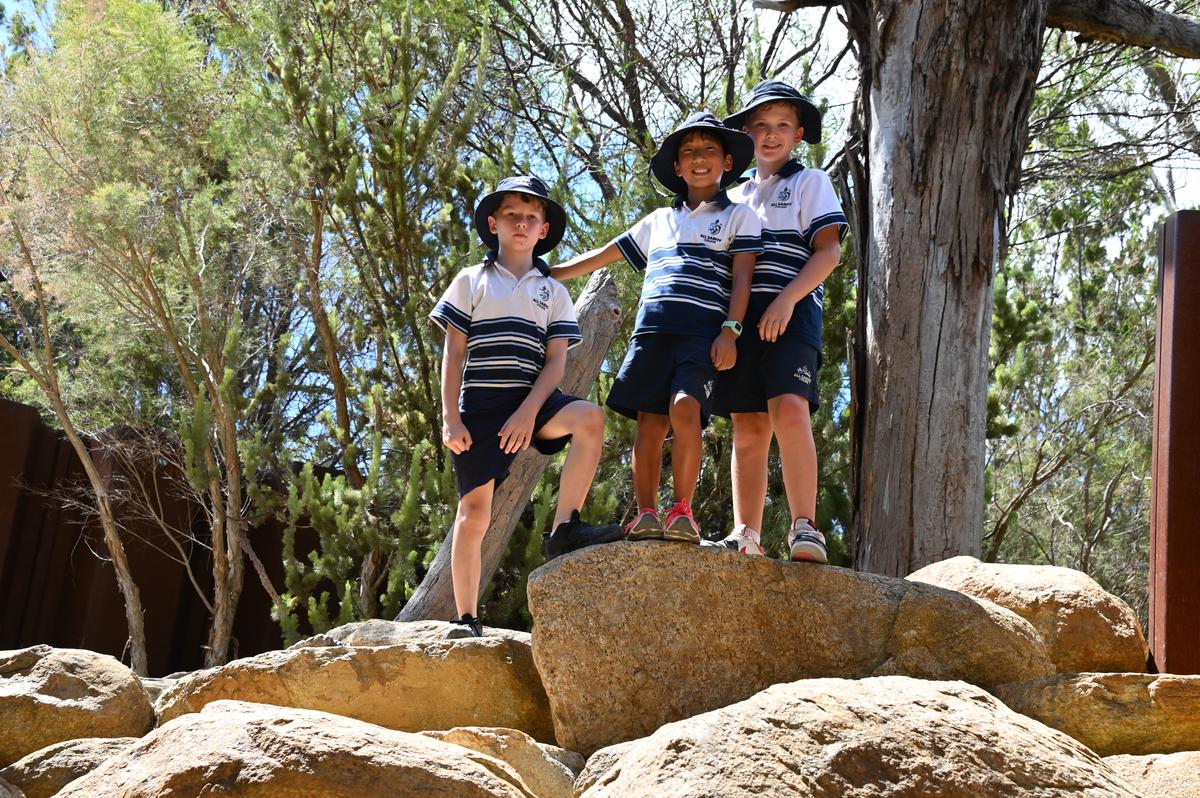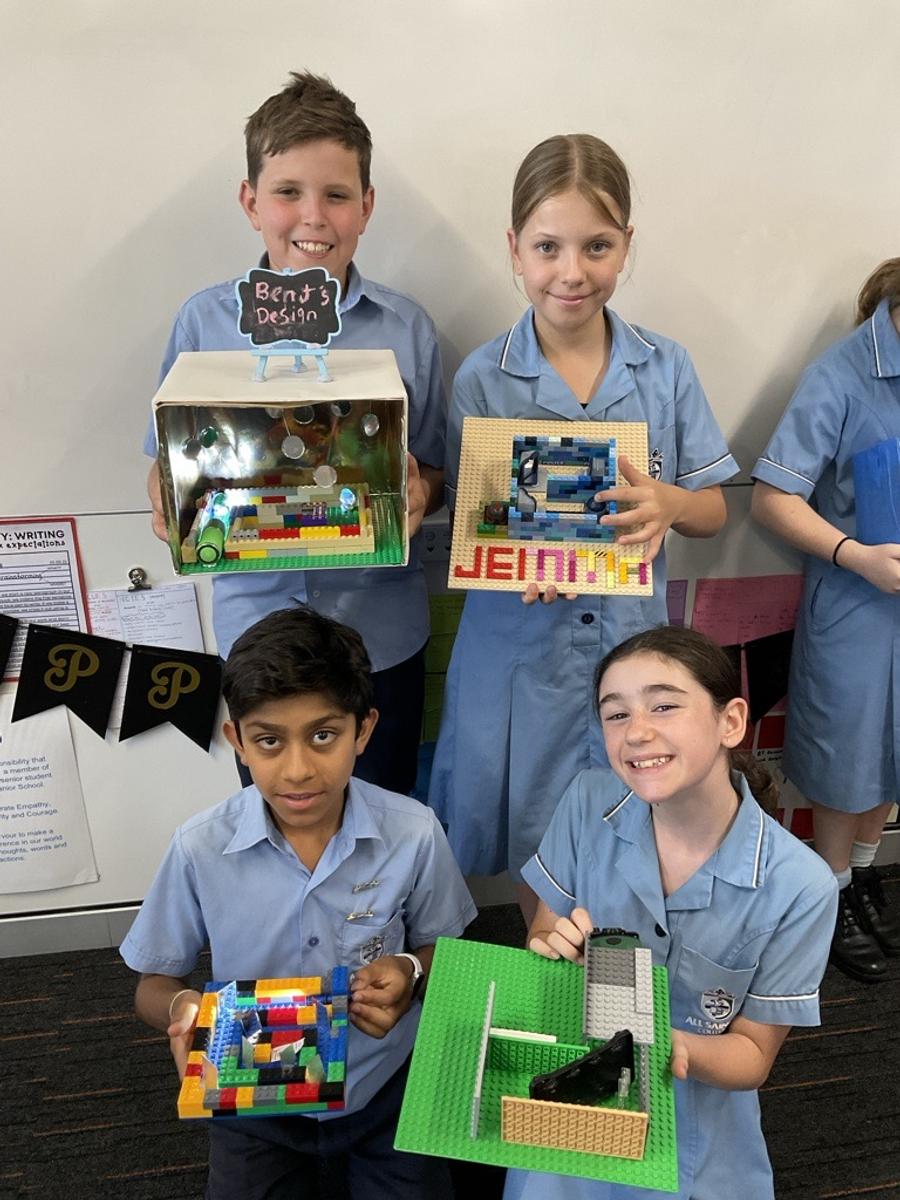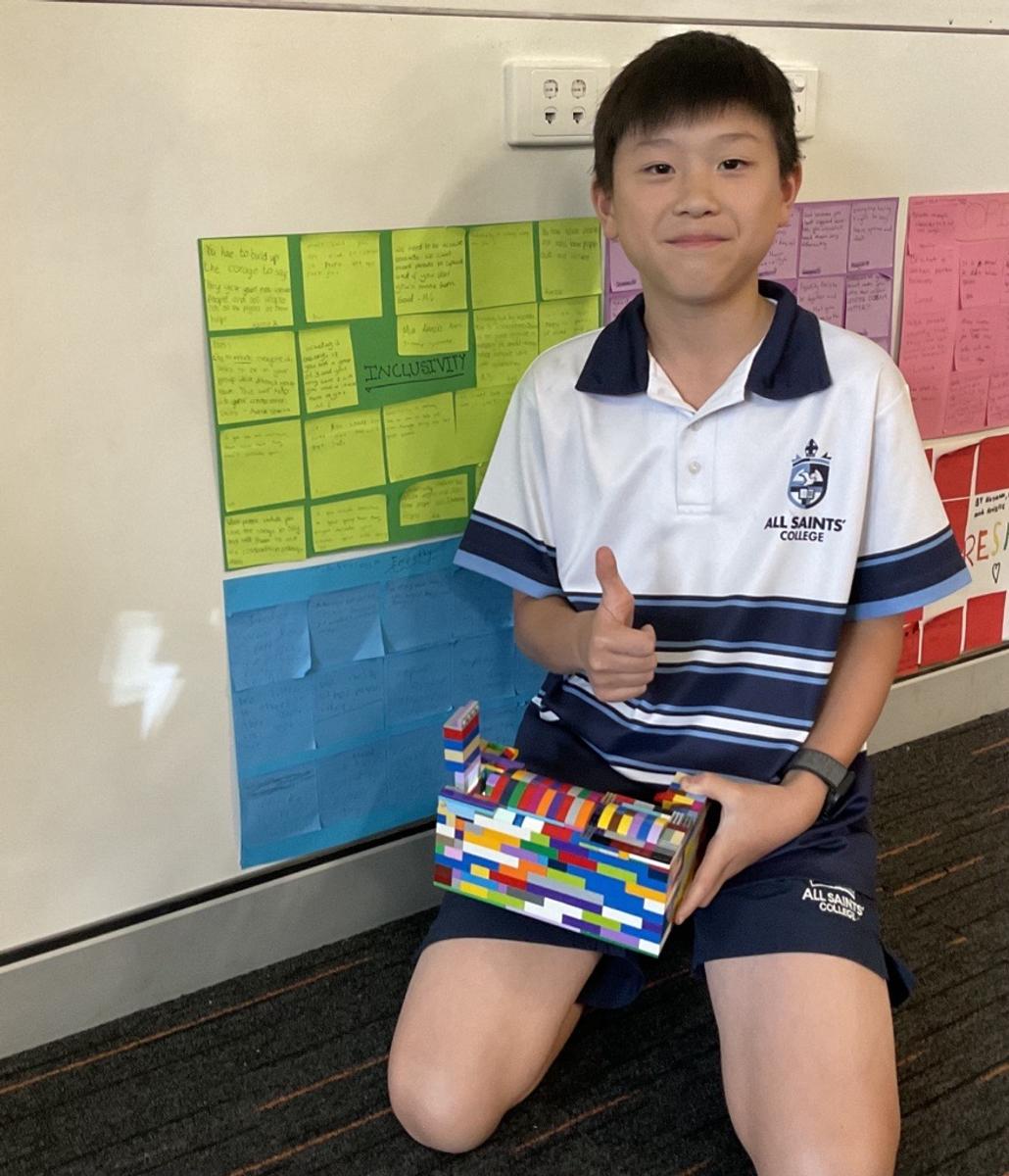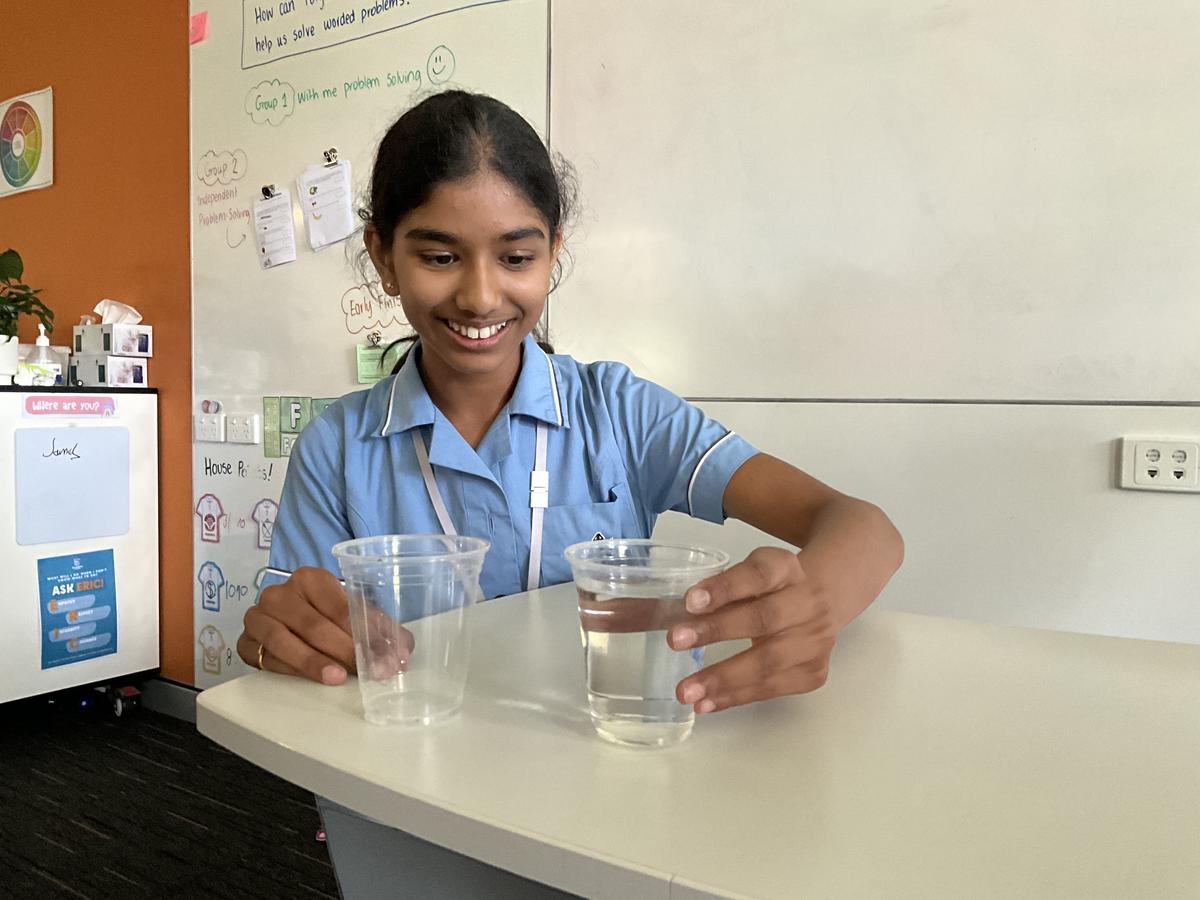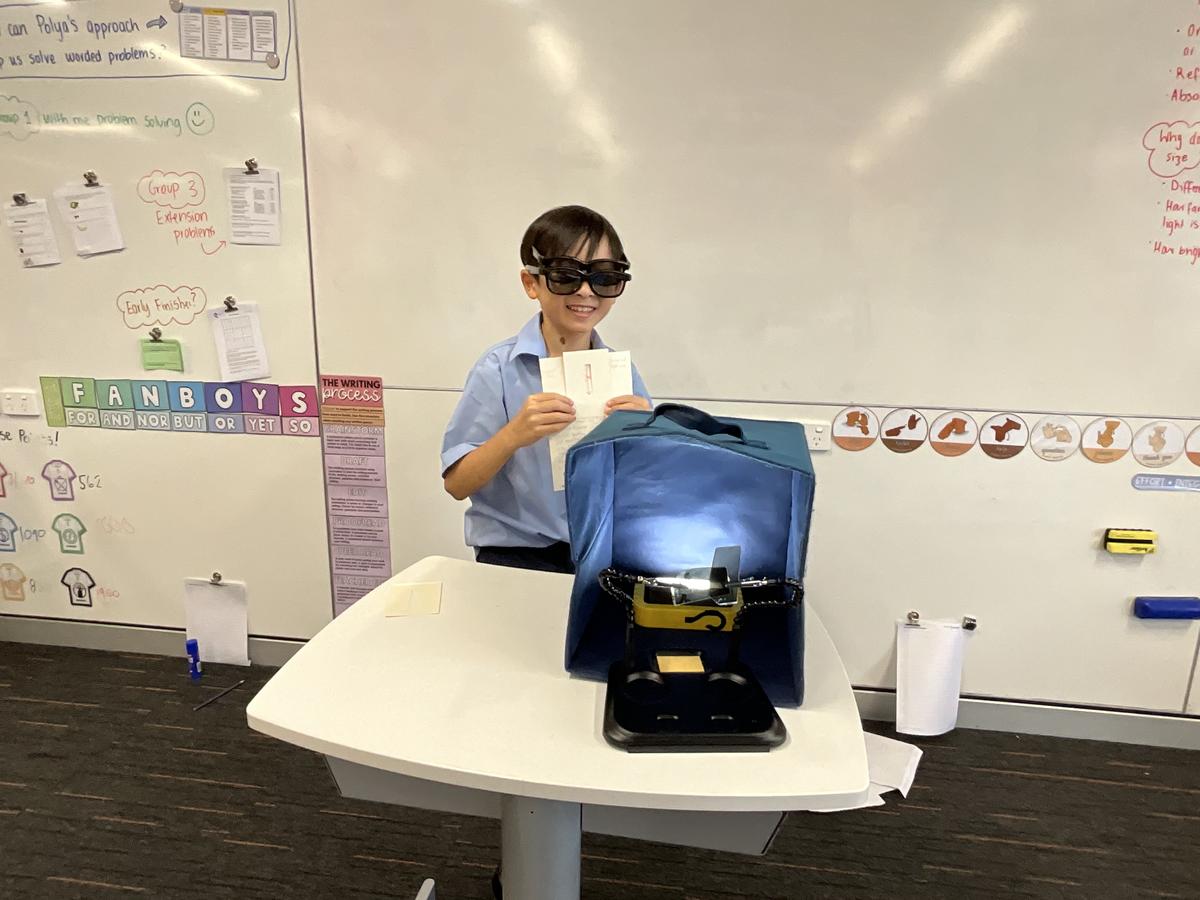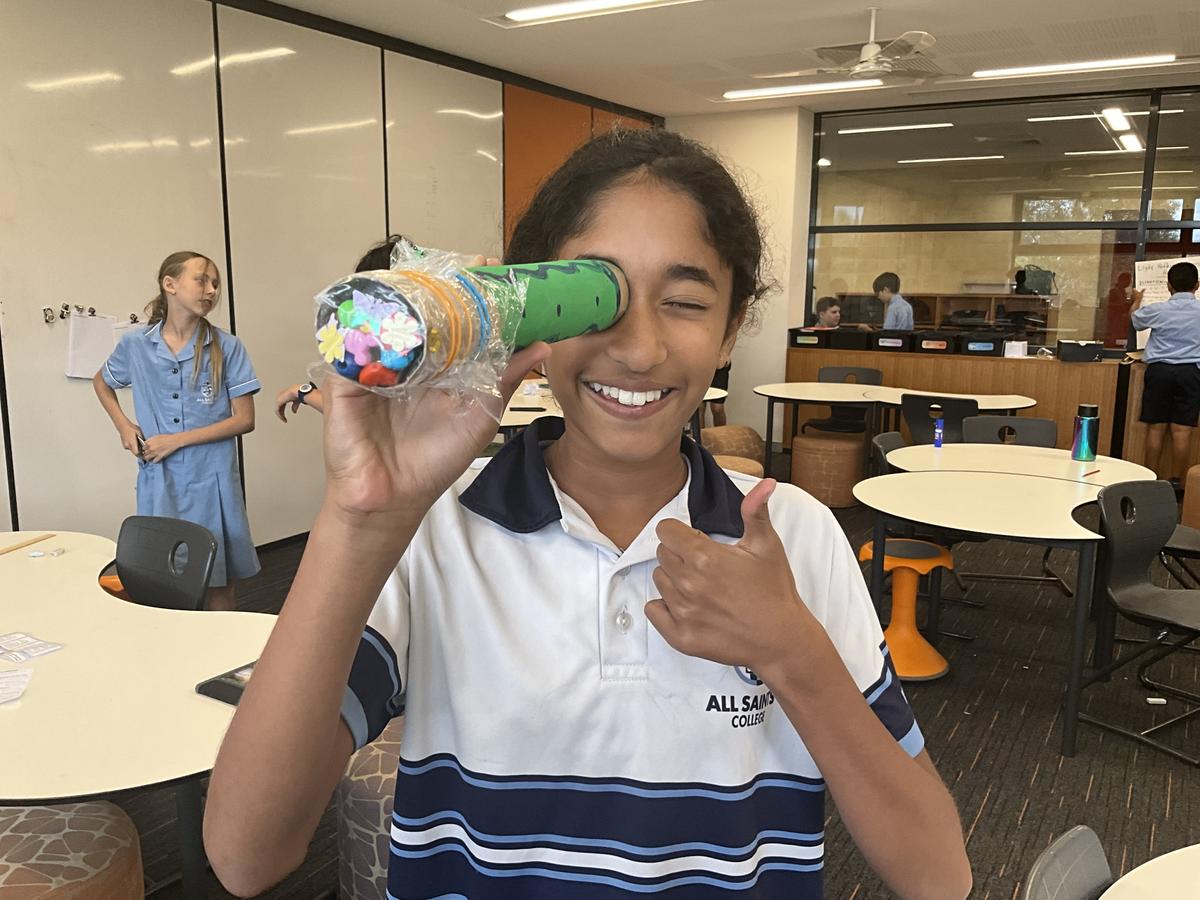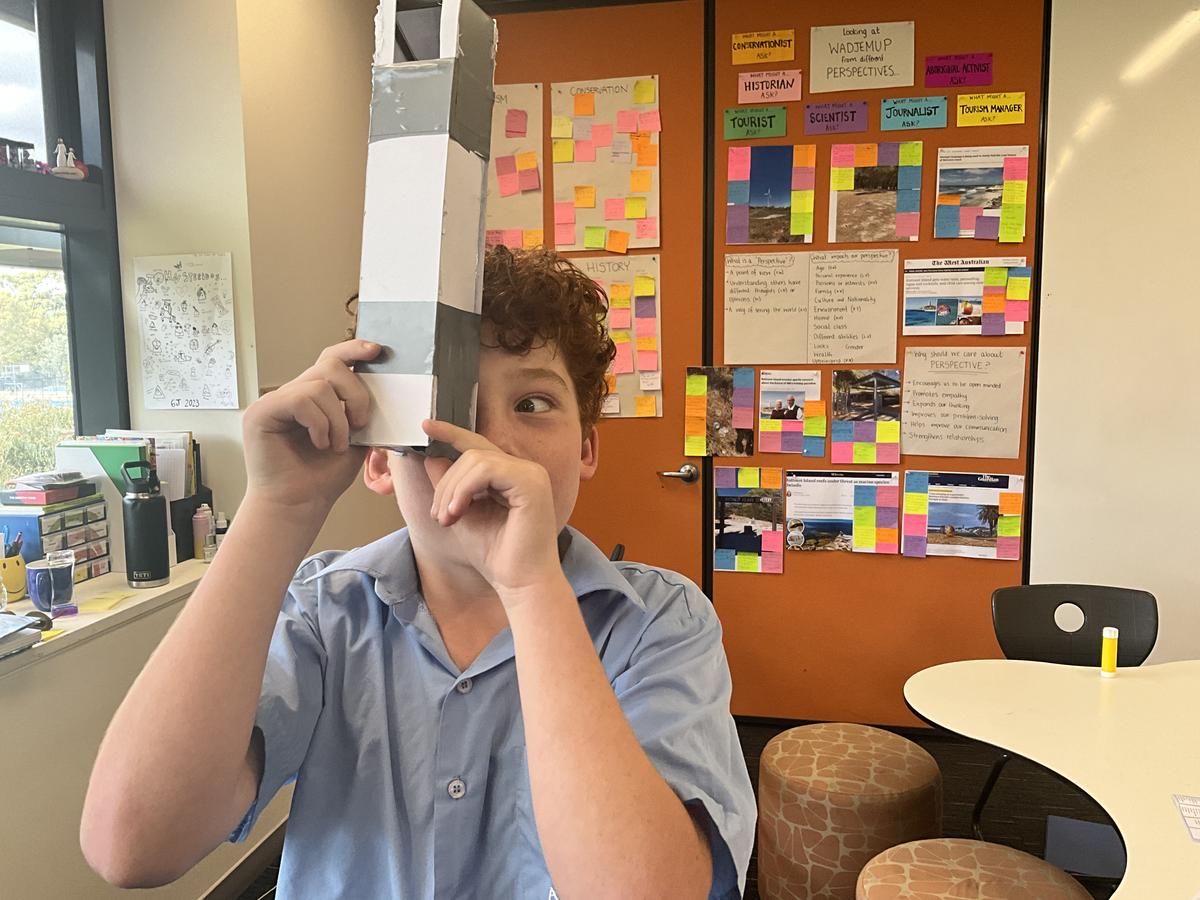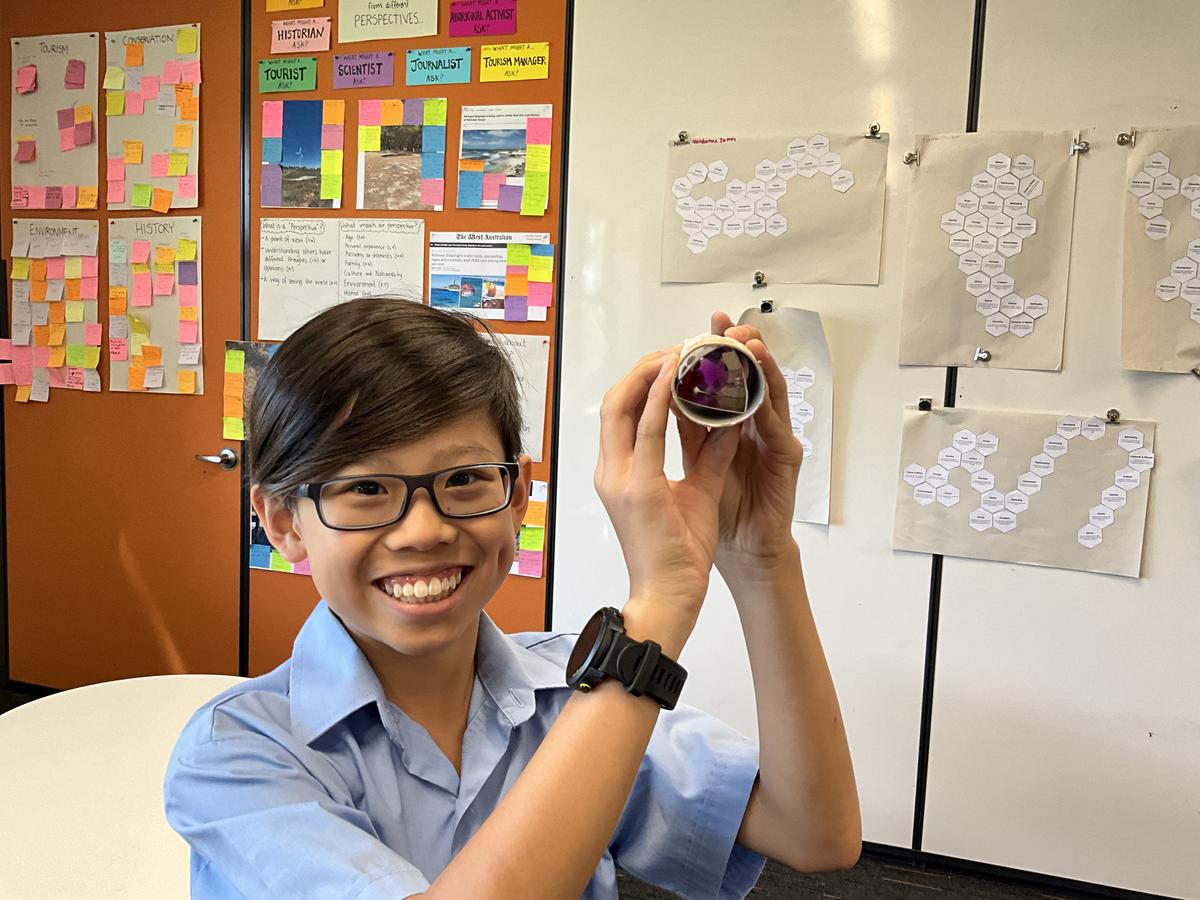Junior School
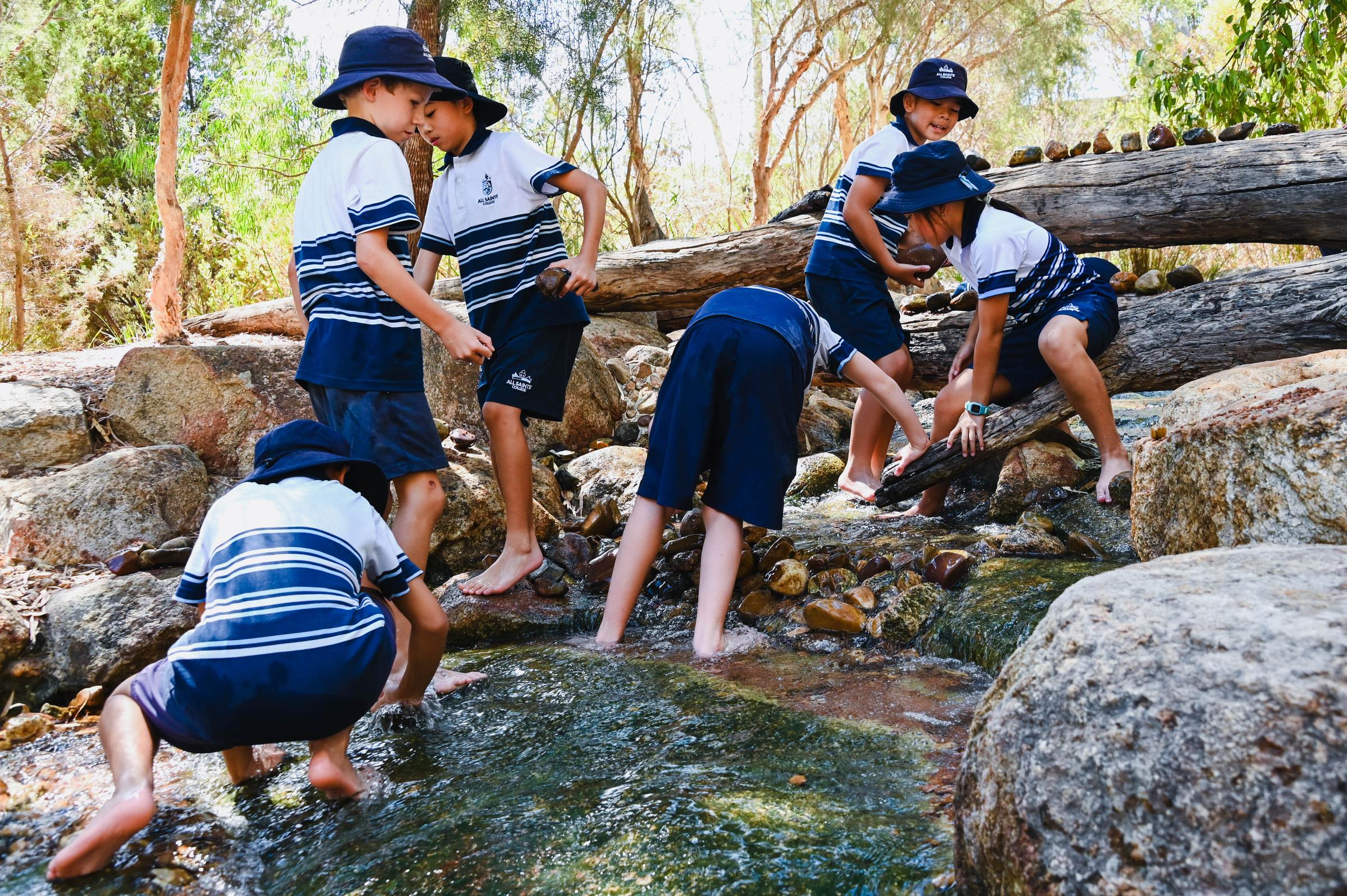
Year 5 Grandparents’ and Friends’ Morning
On Thursday 7 March the Year 5 Grandparents and Friends’ Morning aimed to foster intergenerational connections and offer insights into modern education. Students and guests engaged in Nexus-J, where they experienced storytelling sessions and shared reading experiences of different text types incorporated within their inquiries.
A tour of Building 8 and the Year 5 classrooms encouraged guests to engage with the current classroom inquiries and participate in collaborative problem-solving tasks. Grandparents and friends had morning tea on the Lower Theatre lawn, where a relaxed atmosphere allowed for conversations and student musical performances. The event successfully bridged generations, celebrating the role of grandparents and friends in our students’ lives while fostering a sense of belonging within the school community. Here’s what some of our students had to say:
“I enjoyed playing spot-it with my grandparents and spending time with my friend's grandma.” - Emily Chen
“I enjoyed teaching my grandparents strategies to win connect four.” - Jayden Chen
“I really enjoyed spending time with my friends and mum in the library with board games.” - Robert Leighton
“I enjoyed playing with our guest, having morning tea and reading books with them in Nexus J.” - Neave McCaffrey
Year 4 OLP
On Thursday 14 March our Year 4 students embarked on an engaging excursion to Kaarta Koomba, nestled in the scenic Kings Park. The day was filled with a variety of activities including:
Ecosystem Exploration: Delving into the intricacies of the Banksia woodlands ecosystem, a distinctive feature of our Swan Coastal Plain.
Citizen Science Involvement: Taking part in the ‘Future Keepers’ project, where they gathered valuable data on local flora, contributing to an essential citizen science endeavour.
Hands-on Learning: Crafting ‘seed bombs’ using seeds from Everlasting flowers, fostering a profound connection with the natural world.
Nature Playground Experience: Relishing time outdoors, going barefoot, constructing dams, and fully immersing themselves in unstructured natural play.
Students described the day as ‘magical’, ‘exhilarating’, and ‘fun’ emphasising their enjoyment and active engagement. They are looking forward to more opportunities to learn about and contribute to protecting our delicate natural environment.
Year 6 Inquiry
The Year 6 cohort has been working on a project that involves learning about the behaviour of light. Our task was to investigate how light is reflected, refracted and absorbed. First, we created videos showing examples of light behaving in these ways in our daily lives. Our second step was planning a model demonstrating the way light works. This included drawing a blueprint and getting feedback from our peers. Finally, we created our models and presented them to the class.
From doing this project, we learnt that light travels in a straight line and can change its direction by bouncing off shiny surfaces like mirrors and water. This is called reflection. Light gets absorbed by dark, rough and uneven surfaces, which is called absorption. Have you ever wondered why a spoon looks bent when in water? This is because of refraction, which is when light changes its speed when it travels through a different medium.
Our class utilised a variety of different materials to make our models, and the final products were very creative. From Lego light mazes with laser pointers, periscopes and peek boxes to DIY projectors, we all had fun exploring the way light works.
Written by Samuel Lau (Year 6)
Triple P
Thank you to parents who were able to attend our Triple P Seminar Series this term. It was wonderful to have the opportunity to work with such a warm, attentive and engaged group. It was a great opportunity to discuss the joys and challenges of the parenting in the fast-paced world we live in, and how to support our young people to become the best they can be. Please keep an eye out for our next Triple P Seminar series later this year, kindly sponsored by the P&F.
The six key building blocks we discussed in Seminar 2 on Wednesday 13 March were:
1. How to encourage your child to show respect
2. How to encourage your child to be considerate
3. How to help your child to be a good communicator and develop social skills
4. How to develop healthy self-esteem in your child
5. How to teach your child to become a good problem solver
6. How to promote independence in your child
The following week, on Wednesday 20 March, we held the third and final instalment of the Triple P seminar series for Term 1, with a topic that was highly relevant to many: Raising Resilient Children.
The key messages from this informative seminar were:
· The foundations for emotional resilience are laid in early childhood
· Emotional skills are important for happiness, wellbeing and success in life
· Children learn a lot about managing their emotions from parents
Parents can help children to:
· Recognise, understand, and accept feelings
· Express feelings in appropriate ways
· Develop a positive outlook and coping skills
· Deal with uncomfortable feelings
· Cope with stressful life events

